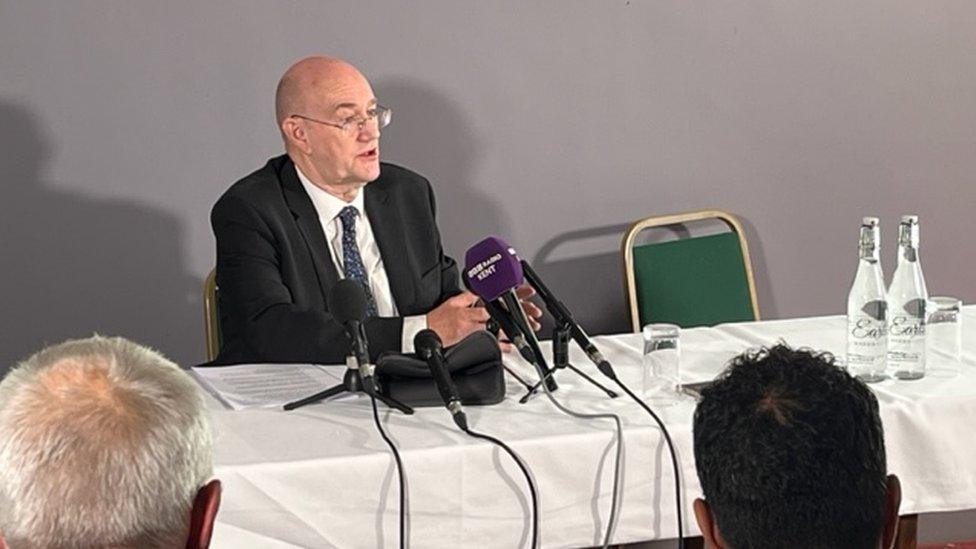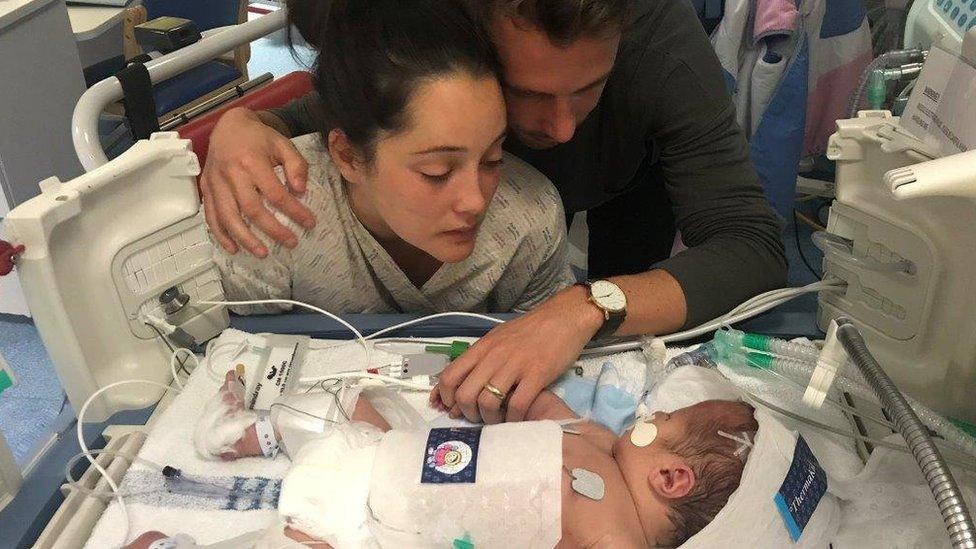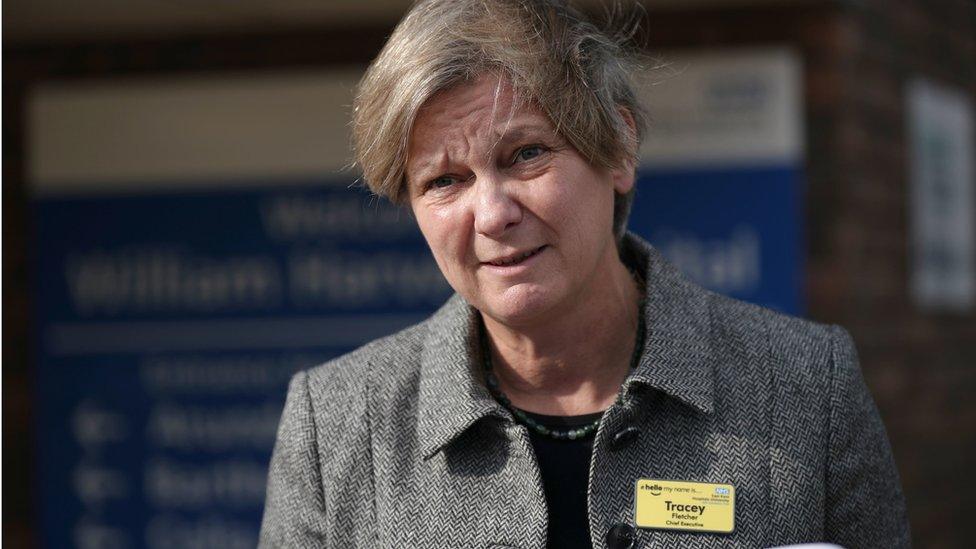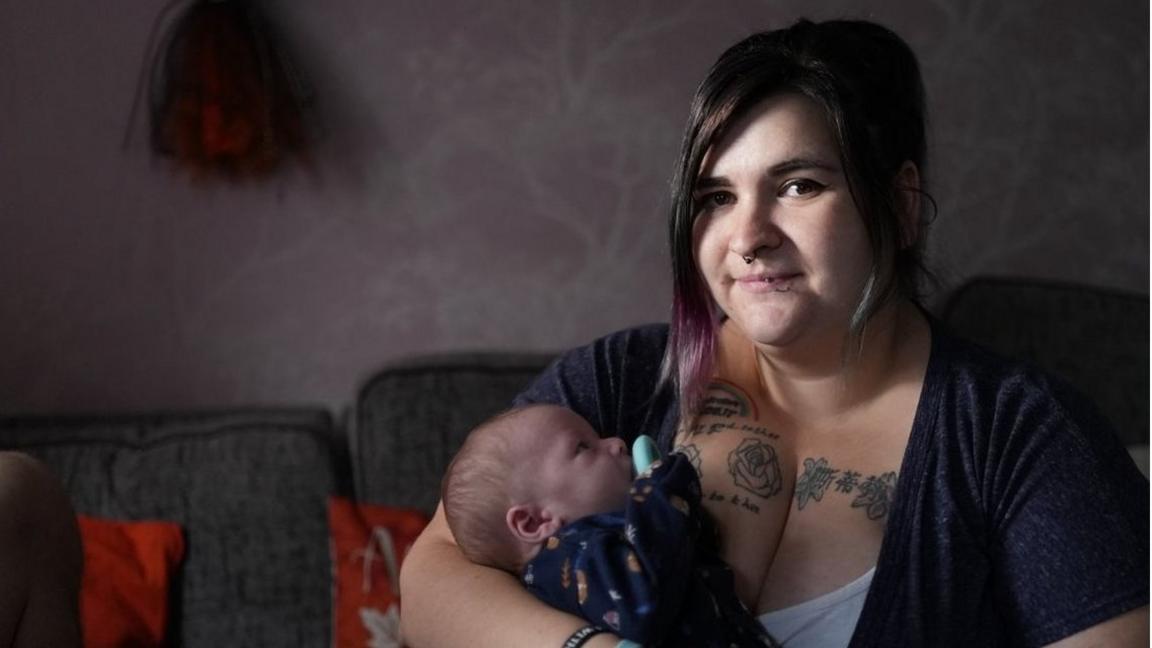East Kent hospitals: Maternity concerns at baby death NHS trust
- Published

An independent review in October found that at least 45 babies might have survived
Hospital inspectors have raised safety concerns over maternity care at an NHS trust where dozens of babies died unnecessarily.
The Care Quality Commission (CQC) is threatening the East Kent Hospitals trust with enforcement action to ensure patients are protected.
An independent review in October found that at least 45 babies might have survived with better care at the trust.
The trust said it was working to improve services and had more to do.
Inspectors carried out an unannounced inspection of the trust's maternity services over two days last week.
Following the visit, the CQC has now written to the trust "to request evidence of the steps it is taking to ensure people are safe and protected from risk."
In a statement to the BBC, Deanna Westwood, a director of operations with the CQC, said they would "review the trust's response to determine whether the use of our enforcement powers is required."
The warning comes just four months after the trust was severely criticised for its maternity care between 2009 and 2020.

An independent review was chaired by Dr Bill Kirkup CBE
An independent review, chaired by Dr Bill Kirkup, found the trust had "covered up" the extent of its failures at two of the hospitals it runs, the Queen Elizabeth the Queen Mother in Margate and the William Harvey in Ashford.
While the inspectors have not said what patient safety concerns they found during last week's visit, a BBC investigation in October found significant problems.
An internal report now obtained by BBC News shows some of the challenges the trust faces. Written in August, it found seven areas that required "immediate remedial action", including:
The use of clinical assessment tool in all areas but specifically relating to sepsis, foetal heart-rate monitoring, high risk or deteriorating patients
The criteria for when "virtual" antenatal appointments are appropriate versus face-to-face reviews
The methods and culture relating to escalating concerns and clinical handovers
Poor documentation
The report, written by Carol Drummond, the interim director of midwifery, noted that many of the problems had been highlighted in February 2020 in a report by the Healthcare Safety Investigation Branch and that "it is concerning that despite large scale improvement plans there appears to be limited impact on the issues identified" in the report.
At a meeting in December, the trust's board agreed that they did not meet the criteria for a scheme that aims to promote maternity safety across the NHS in England.
The maternity incentive scheme, run by NHS Resolution, gives a financial reward to trusts that meet all the initiative's 10 safety standards.

Harry Richford would have survived but for failings by the hospital
The trust has previously falsely claimed to have met the criteria and been forced to repay over £2m. In addition the trust has been fined more than £700,000 for failings in relation to the avoidable death of Harry Richford.
The independent review found there had been "gross failures" of team-working, with some staff acting as if they were responsible for "separate fiefdom, cultivating a culture of tribalism".
'Immediate action'
Sarah Shingler, chief nursing and midwifery officer and deputy chief executive of East Kent NHS, said: "We continue to work hard to improve our maternity services, including our work to listen to and act on feedback from those using our care. Although a number of changes have been made, we know there is a lot more to do.
"While the CQC recognised some of the improvements as a consequence of that work, they also identified some areas of concern following their inspection last week.
"We are taking immediate action to respond to the CQC and address these concerns to ensure we are delivering the high-quality care we and our patients expect."

Follow BBC South East on Facebook, external, on Twitter, external, and on Instagram, external. Send your story ideas to southeasttoday@bbc.co.uk, external.
- Published17 November 2022

- Published21 October 2022

- Published19 October 2022

- Published18 October 2022
